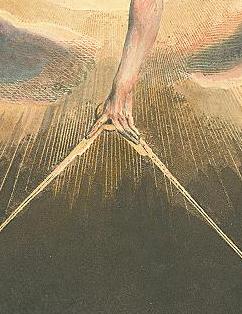Tuesday, November 28, 2006
And The Children Shall Lead Us
 There is a pretty wise op-ed piece, "Religion, science not incompatible," by Shazia Haq in the Daily Trojan, the student newspaper of USC, concerning the recent conference "Beyond Belief: Science, Religion, Reason and Survival."
There is a pretty wise op-ed piece, "Religion, science not incompatible," by Shazia Haq in the Daily Trojan, the student newspaper of USC, concerning the recent conference "Beyond Belief: Science, Religion, Reason and Survival." The author quotes Neil deGrasse Tyson to the effect:
What concerns me now is that even if you're as brilliant as Newton, you reach a point where you start basking in the majesty of God and then your discovery stops - it just stops ...[Considering the fact that Newton did "bask in the majesty of God" one wonders at what point Tyson supposes Newton "just stopped."]
After then quoting Francisco J. Ayala on the futility of missionary attempts to convert the world to a rational life based on scientific knowledge, the author quotes Salman Rushdie, from The Satanic Verses:
Question: What is the opposite of faith?
Not disbelief. Too final, certain, closed. Itself a kind of belief.
Doubt.
As the author sums up:
Doubt does not constitute a dismissal of religion. Accordingly, faith is not the antonym of curiosity, and religion and science do not have to be contradictory ideals.
And, when you think about it, what is more contrary to science than certainty?
.
Comments:
<< Home
Newton's ability to see good, new stuff, seems to have left him while he was still quite young. According to every source I've ever seen, his later life was spent trying to perfect some part of alchemy, in contradistinction to the laws of chemistry and physics. He discovered little or anything of value to anyone.
Is that what Tyson meant?
Is that what Tyson meant?
And what "new good stuff" did Einstein do after about 1915? Physicists and mathematicians rather famously do all their best work before they turn 30. I doubt it is because of god-gazing in later years.
Newton did rather better than most, with his work on optics and light, the laws of motion and the Principia all coming after age 30. For that matter, what really "new good stuff" did Darwin come up with after about 1842?
If Tyson was serious, he has more than a little empiric work to do. But, heck, that would be doing real science rather than philosophy.
Newton did rather better than most, with his work on optics and light, the laws of motion and the Principia all coming after age 30. For that matter, what really "new good stuff" did Darwin come up with after about 1842?
If Tyson was serious, he has more than a little empiric work to do. But, heck, that would be doing real science rather than philosophy.
Oh, and by the way, you do you know that, historically, alchemy in the late 17th and early 18th century was chemistry and remained so pretty much up to the time of Lavoisier. Madison Smartt Bell's Lavoisier in the Year One has a pretty good popular history of alchemy/chemistry.
Looking down on Newton for doing alchemy is an error in understanding of the historic framework of science.
Looking down on Newton for doing alchemy is an error in understanding of the historic framework of science.
The Daily Trojan is the USC newspaper. The UCLA daily is the Daily Bruin. Trivial maybe, but here in La La Land a mistake like that could be considered fighting words
Post a Comment
<< Home




